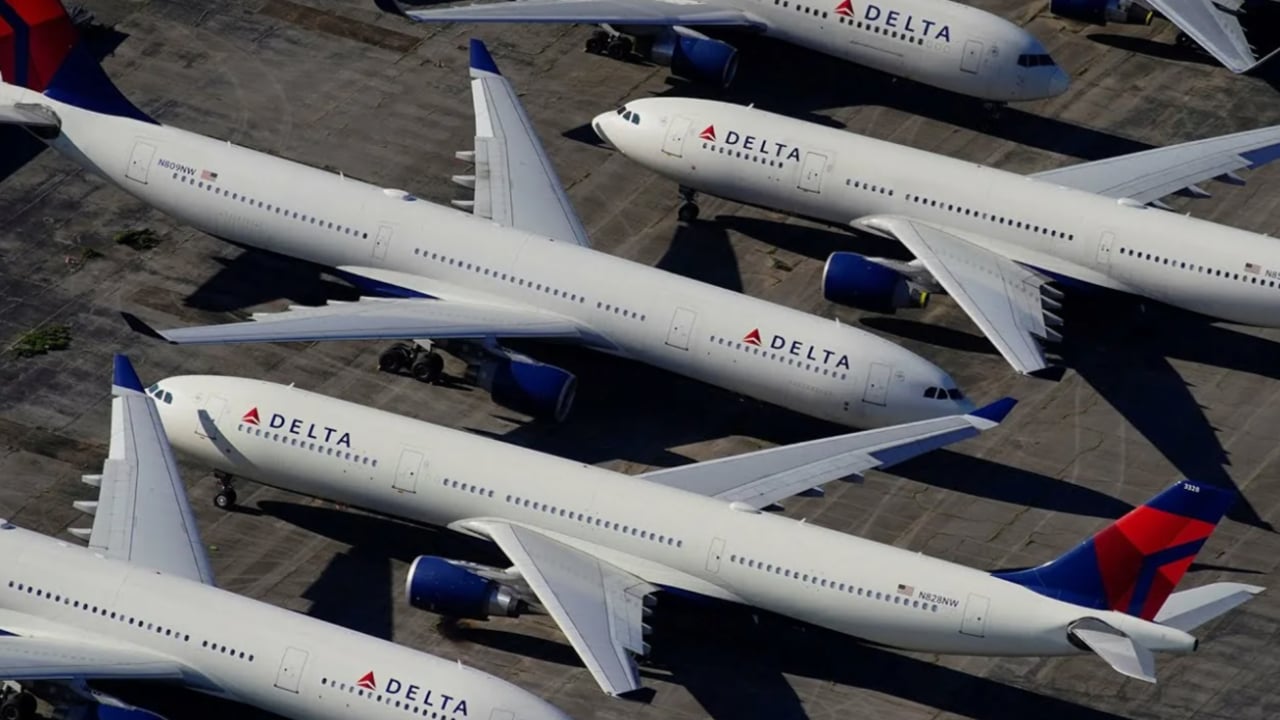New Profit Forecasts by Delta Air Lines Disturb Financial Markets
Delta Air Lines, a leading player in the U.S. aviation sector, has recently revised its profit forecast amid growing economic uncertainty in the United States. On Monday, the company’s CEO announced that the deteriorating economic outlook has had a significant impact on domestic travel trends. This update has sparked notable movements on the financial markets, highlighting the sensitive relationship between economic conditions and airline performance.
Summary of Forecast Adjustments
Based in Atlanta, Delta Air Lines became the first major U.S. carrier to publicly disclose that mounting economic concerns among consumers and businesses are adversely affecting domestic travel. The decline in travel-related expenditures—closely linked to overall economic activity—and a drop in government contracts have led the company to reduce its earnings estimates. Previously, Delta had anticipated earnings ranging from 70 cents to 1 dollar per share; however, the revised forecast now lies between 30 and 50 cents per share.

Analysis of Contributing Factors
The recent downgrade in profit forecasts is attributed to a series of economic challenges that are impacting the aviation industry as a whole. The following numbered points outline the key factors influencing Delta’s revised predictions:
1. Increased economic uncertainty in the United States
2. Reduced demand for domestic travel due to cautious consumer and corporate spending
3. Declining government contracts as federal expenditure constraints take effect
4. A wave of market sell-offs that intensified investor apprehension
5. Broader expectations of a drop in airline travel demand
Market Reactions and Comparative Trends
The adjustment in profit forecasts triggered a swift and significant market reaction. On Monday, airline stocks experienced considerable declines as investors responded to the news. Immediate market performance of major carriers was as follows:
- Delta Air Lines saw its share price drop by 14%
- United Airlines experienced an 11% decline
- American Airlines fell by nearly 9%
Additionally, the S&P 500 index for passenger airlines decreased by 22% over the past month, compared to a mere 7.5% fall in the overall S&P 500 index. Over the same period, Delta’s shares experienced a total decline of 24%, reflecting the broader market sentiment.

Conclusions and Expert Expectations
Analysts from Jefferies had anticipated a reduction in Delta’s profit forecasts, though the magnitude of the downgrade exceeded many expectations. The current economic uncertainty, along with a drop in domestic travel demand and curtailed government spending, underscores the vulnerability of the airline industry amid broader economic challenges. Key market insights include:
- Economic uncertainty directly influences financial performance
- Constrained government spending pressures airlines’ revenue from public contracts
- Heightened market volatility complicates future earnings forecasts
These developments emphasize the importance of closely monitoring economic trends and understanding their repercussions on the aviation and financial markets. The situation serves as a critical indicator for financial analysts and industry specialists assessing the overall health of the U.S. aviation sector.



It's a stark reminder of how closely the airline industry is tied to the economy's ups and downs.
It's unsettling to see how quickly economic shifts can ripple through the aviation industry.